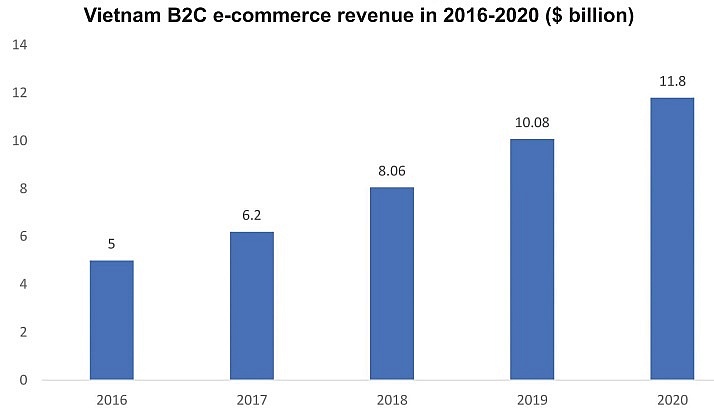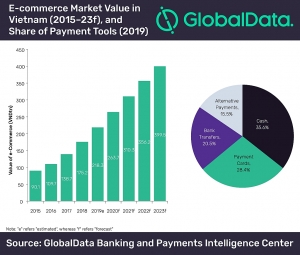Vietnam’s draft e-transaction law and the highlights within
In 2021, the government implemented policies on the development of digital government, economy, society, and citizens, including the amendment of the Law on E-transactions. The law has been revised to include the following points:
- Expanding scope of application;
- Supplementing the regulations allowing the conversion of data messages into a physical document and vice versa;
- Supplementing regulations on e-signature classification and recognising the use of foreign e-signature;
- Regulations on trusted services;
- Strengthened management of state authorities on digital platforms.
 |
Compared with the Law on E-transactions 2005, the new draft has expanded the scope of application to the administrative field. The amendment is in line with new trends, such as by September 2021, Vietnam had 25 out of 63 provinces and cities allowing online marriage registration. Other complicated judicial, and administrative procedures, such as registration for a certificate of land use and ownership of houses and other land-attached assets, are likely to apply for electronic documentation going forward. Unlike the existing Law on E-transactions, the draft has not regulated the formats, conditions, and methods to prove the legitimacy of data messages. However, there is a supplement on regulations to ensure the legitimacy of the physical document, admin procedure results, certificates, and physical documents converted from data messages and vice versa. However, the criteria for determining reliability are still difficult in practice, especially for individuals. Thus, the draft needs to be further amended.
However, the new adjustments should solve problems related to the legitimacy of data messages when digitalising, partially reducing the document duplication and authentication of document procedures, and enhance the potential of e-transactions in many fields.
Trusted services have been researched and developed based on experiences in the development of foreign law. Accordingly, the three key types of trusted services are timestamp granting services, certification of data message services, and public e-signature services.
Although trusted services are a conditional business line, current regulations empower service providers to build business plans, infrastructure systems, and service delivery standards. Therefore, legislators in Vietnam should research and evaluate further before issuing decrees and circulars guiding the licensing of trusted services.
The draft has supplemented regulations on the management of digital platforms of state authorities, such as regulations on registration of such platforms, not disseminating prohibited information and documents, complying with the principle of fair competition in business, and fully fulfilling tax obligations.
At the same time, the draft regulates the classification of digital platforms according to their specific size and nature. This regulation binds individuals and enterprises doing business on such platforms to meet business conditions and comply with obligations to protect public interests as the number of users on digital platforms increases.
E-transactions help parties to enter transactions without the worries of geographical barriers, saving time, effort, and money. From 2006 to 2020, Vietnam’s e-commerce market grew from nearly zero to an estimated $12 billion (estimated). In 2018, Vietnam’s e-commerce had a growth rate of over 30 per cent. The buying habits of Vietnamese consumers have also changed dramatically.
The new highlights in the draft are expected to impact Vietnamese enterprises significantly. According to the Department of Informatics under the Ministry of Information and Communications, expanding the draft’s scope is expected to save a minimum of 288 million working hours, equivalent to over VND9 trillion ($391 million) per year. At the same time, the rollout of public services can help raise the rate of electronic administrative procedures being performed by up to 80 per cent, with estimated cost savings for enterprises to be VND2 trillion ($87 million) per year.
Expanding the scope of the draft across many fields is a premise for developing e-governments and digital citizenship. Building a synchronous, unified, and mutually compatible database will require coordinated guidance from several ministries. However, this can be considered a market-building move by the government, bringing many business opportunities in the IT field and for enterprises that have been and will move to provide trusted services.
In practice, the draft will require updating the existing information system and database to comply with the provisions of the law, in which enterprises operating in e-commerce or those regularly applying e-transactions will have to arrange a time and costs of personnel training, technology deployment, and application.
At the same time, this will pose challenges for traditional enterprises that must innovate to apply e-transactions in their activities to align with national policies on developing e-government, digital economy, digital culture, and digital citizens.
 | Vietnam’s e-commerce market to exceed $17 billion in 2023 Rising internet and smartphone penetration coupled with a large young population will propel the Vietnamese e-commerce market, which is projected to grow at a compound annual growth rate (CAGR) of 16.3 per cent from VND218.3 trillion ($9.5 billion) in 2019 to VND399.5 trillion ($17.37 billion) in 2023, according to forecast from GlobalData, a leading data and analytics company. |
(*)Dai Phong and Linh Trang Junior associates, ASIA Legal
What the stars mean:
★ Poor ★ ★ Promising ★★★ Good ★★★★ Very good ★★★★★ Exceptional
Related Contents
Latest News
More News
- Citi economists project robust Vietnam economic growth in 2026 (February 14, 2026 | 18:00)
- Sustaining high growth must be balanced in stable manner (February 14, 2026 | 09:00)
- From 5G to 6G: how AI is shaping Vietnam’s path to digital leadership (February 13, 2026 | 10:59)
- Cooperation must align with Vietnam’s long-term ambitions (February 13, 2026 | 09:00)
- Need-to-know aspects ahead of AI law (February 13, 2026 | 08:00)
- Legalities to early operations for Vietnam’s IFC (February 11, 2026 | 12:17)
- Foreign-language trademarks gain traction in Vietnam (February 06, 2026 | 09:26)
- Offshore structuring and the Singapore holding route (February 02, 2026 | 10:39)
- Vietnam enters new development era: Russian scholar (January 25, 2026 | 10:08)
- 14th National Party Congress marks new era, expands Vietnam’s global role: Australian scholar (January 25, 2026 | 09:54)

 Tag:
Tag:



















 Mobile Version
Mobile Version